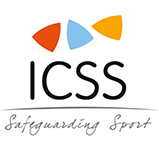TECHNICAL ASSISTANCE AND SERVICES
MSE SAFETY AND SECURITY LEGISLATION
The ICSS can provide support in the drafting of Safety and Security Legislation and Regulations to protect sporting venues, the host nation’s vulnerable targets, its citizens, the athletes and stakeholders participating in the sporting competitions, the fans, visitors and the overall opportunities generated by the event.
SAFETY AND SECURITY OPERATIONAL PLANNING
The ICSS can deliver safety and security operational planning documentation, including:
- Masterplan;
- Timeline of Key Deliverables;
- Concept of Operations (CONOPS) Frameworks for competition and non-competition venues;
- Venue Operational Safety and Security Plans; and
- Venue Security Operational Policies and Procedures.
OBSERVER PROGRAMMES
The ICSS undertakes observation programmes of various single and multi-event sports to identify safety and security best practices. This information is then integrated and incorporated into our projects and operations.
POLICE PROTECTIVE SECURITY ADVISOR SUPPORT (PPSA)
With the need to develop a standard approach to protecting and managing crowded places, the ICSS has developed a Police Protective Security Advisor (PPSA) training programme. This enables police officers to advise Business as Usual (BAU) non-competition venues and crowded place security leads to deliver and assure security plans that are integrated with the sporting event security operations.
PRIVATE SECURITY WORKFORCE SOLUTIONS
The ICSS has developed several tools and instruments to ensure the successful integration of private security into sporting events security operations, including:
- Tender documents;
- Operational plans;
- Roles and responsibilities matrix; and
- Training requirements; and
- Assurance programmes.
SECURITY RISKS ASSESSMENTS
Upon request, the ICSS can develop and conduct security risks assessments to enhance the protection of physical assets, information and all persons working at or attending sporting events, consistent with the industry best practices, such as Risk Management Standard ISO 31000 and its subset 31010 Risk Assessment Techniques.
Our best practice approach is customised to the scale and complexity of the project or situation, which might include, among others, risk assessments related to the organisation of sporting events in post-conflict nations or countries previously affected by major security challenges. It provides an objective and rational basis for security risk management and planning, which delivers the methodology to measure, compare and rank areas of identified risk.
A five-step ongoing sequential process allows for both the identification and mitigation of risks through a logical and tested format which ensures best practice and results.

HEALTH SECURITY
Since 2013, the ICSS has worked closely with the World Health Organization (WHO) in the context of health security. The ICSS has assisted in the establishment of an international expert group on health security at mass gatherings, relevant to COVID-19. This expert group has developed a capacity to conduct risk assessments and provide advice with risk mitigation strategies to facilitate the return to sport competitions.
The ICSS can conduct an impartial and pragmatic determination of the current level of operational planning in the context of the COVID-19 Pandemic through the following process:
Highlighting any perceived gaps in planning based upon current standards and best practice and recommend any additional action required.
Through the monitoring of COVID-19 developments nationally and internationally as appropriate. The ICSS can also note and apply any new and evolving guidelines from recognised sources, that may be relevant.
To confirm the implementation of planning documentation and recommendations and conduct an in-depth risk assessment focussing inter alia, on infrastructure for public health, venues, accommodations, internal transportations and any other place or event which could pose the persons involved at risk of contamination.
Based on the lessons learned, the ICSS can provide inputs to operational guidelines in the context of the COVID-19 pandemic, as well as formulate recommendations to support future operations to best mitigate risks in the context of COVID-19 or other pandemics.
